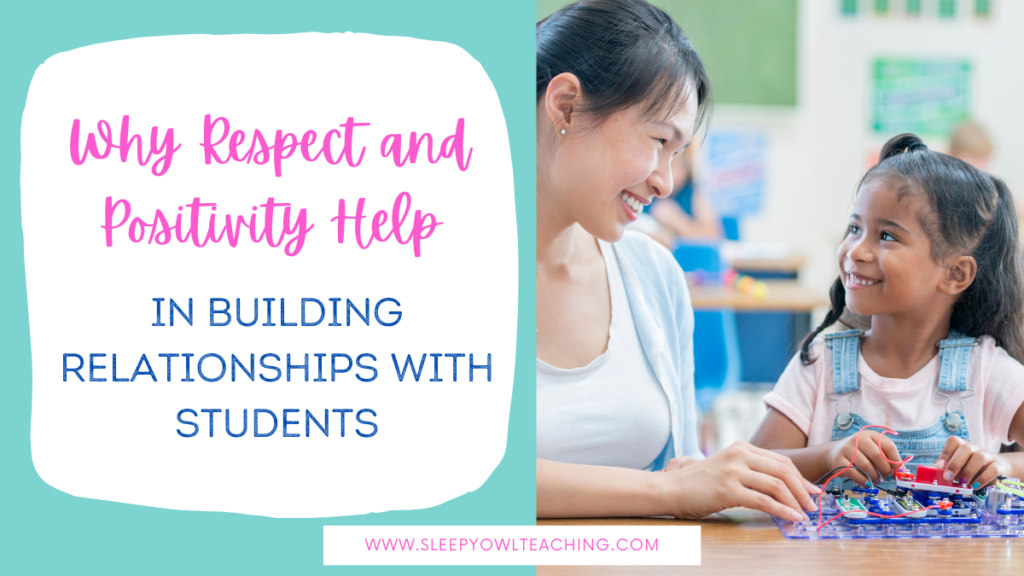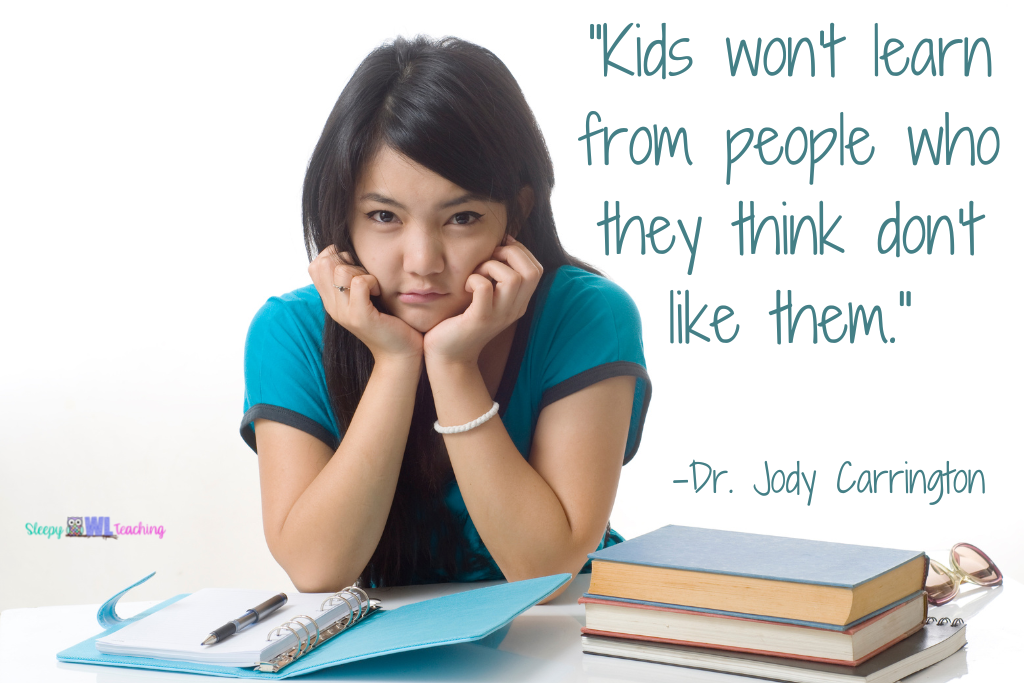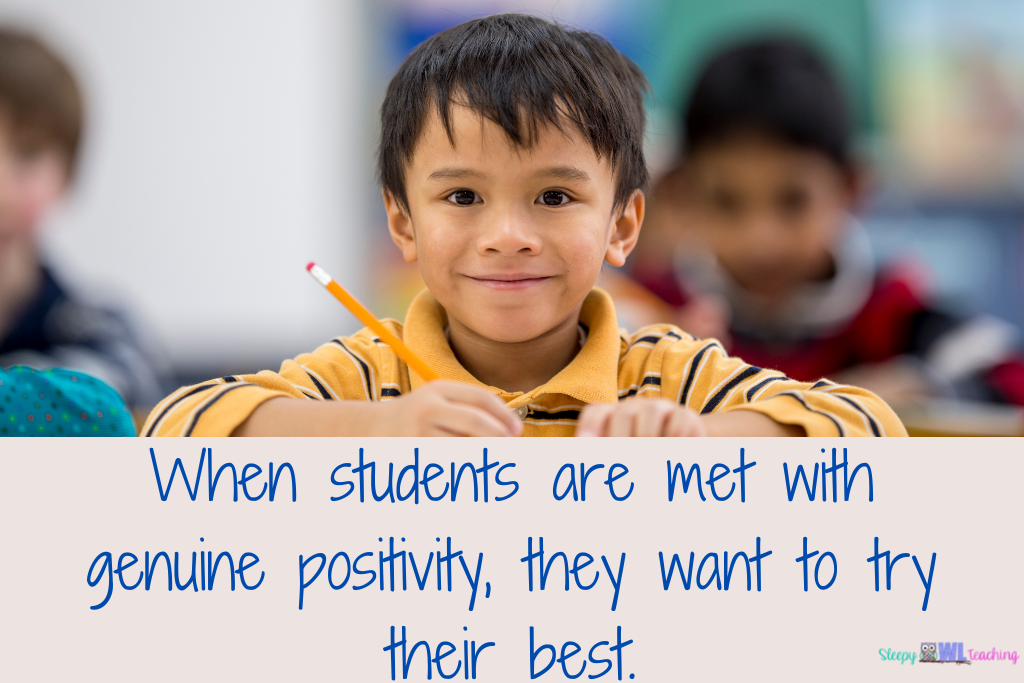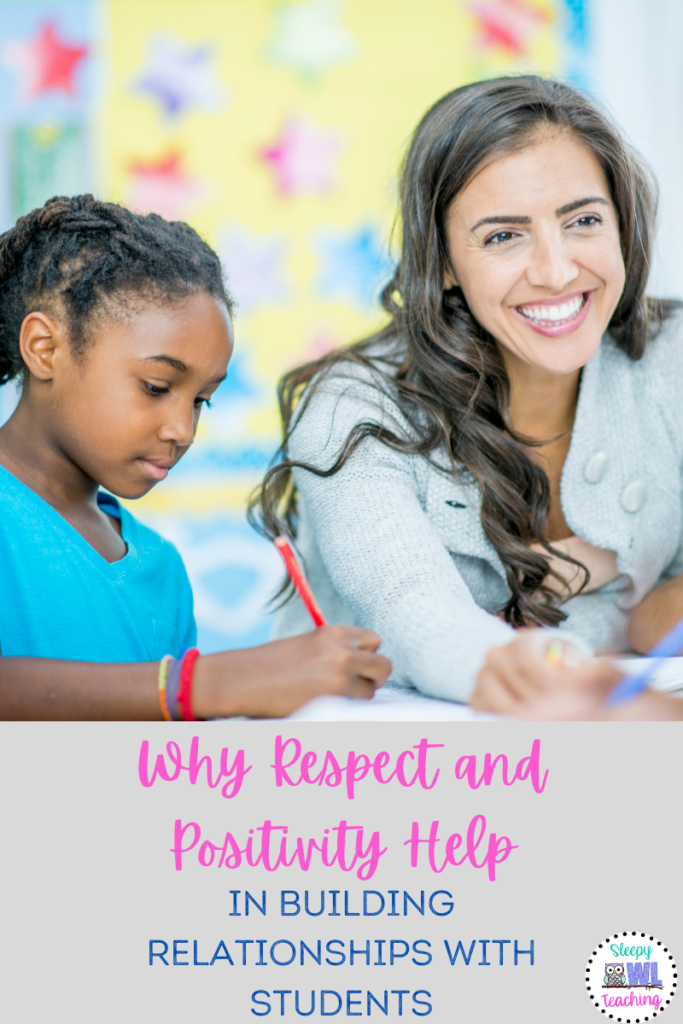In the previous blog post, we talked briefly about why it is important to build relationships with your students, their parents and/or guardians, as well as colleagues. This post will focus primarily on building relationships with students, why it is important, and how to do it.

Building Relationships with Students
One of my favorite quotes is from Dr. Jody Carrington in her book Kids These Days. She says “Kids won’t learn from people who they think don’t like them. See, you can have the best pedagogical plan on the planet. Rainbows and unicorns can be flying out of your whiteboards, you can have bulletin boards that just reach out and touch people. Your budget for Chromebooks can be huge. You can have all of that stuff and it doesn’t matter if you don’t have the connection with the babies you’re trying to teach. And oh, when you do, the places they’ll go!”
Why is it important to build relationships with students? Because they will be more engaged in their work, more respectful towards you and others, and generally want to succeed more.

Building Relationships with Trust and Respect
So how do we do this? How do we build relationships with our students – even the ones that are the most disrespectful and hardest to love? It starts with respect from us. If we talk to our students with respect and show genuine interest in them, they will respond. Have a student who is super into Pokemon? Learn some of the characters and have conversations about them. Does one of your students love playing with the classroom dollhouse? Join them and come up with stories to go with the dolls.
When a student is having a hard time (notice I didn’t say giving you a hard time – there is a difference) stay calm and treat them with respect. When the student realizes that they are not being talked down to or being met with sarcasm or negativity, they will be more willing to engage in the repair work. Some of the best phrases I have used are “I understand how you feel” or “I hear what you are saying”. Patience is one of the hardest tools to come by in the classroom but acting like you have all the time in the world to help these students and staying calm and positive shows the students that you are a trusted adult and that you will respect them, even at their toughest moments.

Building Relationships with Positivity
We’ve all had those days where we wake up on the wrong side of the bed or our kids give us a hard time getting out the door in the morning. Maybe you stepped in dog poop on your way to work or got caught in a rain storm. Each one of these is a good reason to walk into work in a bad mood and let it affect everyone around you. And guess what? Our students have these as well. Maybe their parents got into an argument and they couldn’t sleep. Maybe they forgot their medicine in the morning or their pet just died. All of these examples are reasons that students can walk into school ready for a tough day. And each of these examples is something that happened outside of school and you may have no clue about.
The best way to combat these precipitating factors is with positivity. You may not be in the mood to teach and wrangle little humans today, but you sure can act like it. When the students walk in and see a smiling face and a positive greeting, their mood lifts. Suddenly, things that happened at home don’t seem so bad anymore. Positivity is catching. Joking and being silly go a long way toward shifting moods.
When students are met with genuine positivity, they want to try their best. A teacher who always has a negative attitude does not inspire positivity and in turn, does not inspire engagement and the drive to participate from students. When they feel like they are a burden or are making the teacher mad or upset, they want to try less.
Building relationships with students takes a lot of work. It’s not all rainbows and sunshine. Some days you may want to crawl into a hole and not come out for a week. But remember, you have little people counting on you to be the light and guidance in their life and to teach them what they need to know. Academics aside, if you can be an example of someone who treats people with respect (no matter who they are) and positivity, you are building a foundation for students going forward.
Stay tuned for more information coming up on building relationships with students!

Do you have any tips and tricks for building relationships with students in special education? Do you have examples of why it is important? Let me know in the comments or find me on Instagram @sleepyowlteaching!

